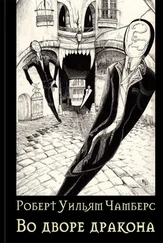Роберт Чамберс - Who Goes There!
Здесь есть возможность читать онлайн «Роберт Чамберс - Who Goes There!» весь текст электронной книги совершенно бесплатно (целиком полную версию без сокращений). В некоторых случаях можно слушать аудио, скачать через торрент в формате fb2 и присутствует краткое содержание. Год выпуска: 2014, Издательство: epubBooks Classics, Жанр: Историческая проза, на английском языке. Описание произведения, (предисловие) а так же отзывы посетителей доступны на портале библиотеки ЛибКат.
- Название:Who Goes There!
- Автор:
- Издательство:epubBooks Classics
- Жанр:
- Год:2014
- ISBN:нет данных
- Рейтинг книги:4 / 5. Голосов: 1
-
Избранное:Добавить в избранное
- Отзывы:
-
Ваша оценка:
- 80
- 1
- 2
- 3
- 4
- 5
Who Goes There!: краткое содержание, описание и аннотация
Предлагаем к чтению аннотацию, описание, краткое содержание или предисловие (зависит от того, что написал сам автор книги «Who Goes There!»). Если вы не нашли необходимую информацию о книге — напишите в комментариях, мы постараемся отыскать её.
Who Goes There! — читать онлайн бесплатно полную книгу (весь текст) целиком
Ниже представлен текст книги, разбитый по страницам. Система сохранения места последней прочитанной страницы, позволяет с удобством читать онлайн бесплатно книгу «Who Goes There!», без необходимости каждый раз заново искать на чём Вы остановились. Поставьте закладку, и сможете в любой момент перейти на страницу, на которой закончили чтение.
Интервал:
Закладка:
"How near are we to Westheath now?" asked Guild, leaning forward in his seat.
"We are there, sir." And the smiling chauffeur slowed the car to a standstill at a cross–roads where furze and broom grew rankly over the heath and a few rather tawdry villas appeared among the trees beyond.
Guild looked at his watch. It was only a little after seven, an unearthly hour for a call upon any young girl, not to mention one to whom he was personally unknown.
A policeman still wearing his waterproof night cloak, came leisurely across to learn what was wanted.
"I am looking for the villa of Miss Girard—Miss Karen Girard," explained Guild.
"Hyacinth Villa, Number 169. Take the road to the right. It is the only house."
"Thank you."
The car moved forward, swung to the right. About a quarter of a mile away stood a small, modern stucco dwelling behind its hedge of privet. Beyond that there were woods again and dewy uplands glimmering with furze and brake.
When they arrived they found the driveway closed by a gate.
"Never mind; I'll walk to the house," said Guild.
The smiling chauffeur leaned back and opened the tonneau door; Guild descended, looked at the iron gate between its ugly stucco posts, peered through it up the drive with its parallel rows of recently planted lime trees. Everything about the place was recent if not brand new—ugly with the ugliness of well–to–do bad taste. Red geraniums and yellow cannas had been planted in fearsome juxtaposition, salvia flanked a red brick terrace—a most unholy combination of colour. In the early morning the sun exposed the place without mercy. It was lonesome and amazingly depressing.
Glancing up at the gate again he discovered a nickel–plated label riveted to one of the stucco posts. On it was the name of the place, "Hyacinth Villa," and its number 169.
There was no lodge, no bell, but the wicket gate was not locked. So Guild entered.
"Shall I drive up to the house, sir?" inquired the chauffeur.
"No; wait out here."
There seemed to be no sign of life about the house when at last he arrived in front of it—nobody apparently stirring at that hour. He hesitated; he still wore the same knickerbockers and cap which he had worn in Belgium. His sack, which was now in the car, contained only fresh linen; and he began to wonder what his reception might be in such a costume and at such an hour. He doubted that the unconventionality of the daughter of a Prussian aristocrat might extend far enough to accept him, his rather shabby clothes, and his explanation of the visit.
It was all very well for this young girl to kick over the tradition, cut home traces in the sacred cause of art, call herself Girard, and live in an impossible villa for art's sake. Few well–born Fräuleins ever did this sort of thing, but there had been instances. And anybody in Germany will always add that they invariably went to the devil.
Guild rang. After he had waited long enough he rang again. After that he resumed his ringing. Keeping his finger pressed on the electric button and laying his ear to the door. The bell was doing its duty inside the house; he could hear it.
Presently he heard a fumbling of chains and locks inside, the door opened on a crack and a sleepy voice inquired: "Is it you, Anna?"
Guild hesitated: "I wish to see Miss Girard. Is she at home?"
"Who are you?" demanded the voice no longer sleepy.
"My name is Guild. I am sorry to disturb Miss Girard at such an hour, but I cannot help it. Is Miss Girard in?"
"Yes; I am Miss Girard."
"Are you Miss Karen Girard?"
"Yes. Why do you wish to see me?"
"I can't tell you here. Are you dressed?"
There was a pause, then she said: "No."
"Please dress as quickly as you can. Dress for travel."
"What!"
"If you have a travelling dress put it on. You can pack your luggage while I am talking to you. But dress as quickly as you can and then return and let me in."
She said after a moment's silence: "I certainly shall not do any of those things until I know more about you and about your errand here."
"I have a message for you from General Baron Kurt von Reiter."
"That is possible," she said quietly. "What is the message?"
"I was to say to you that the question which you were to decide on the first of November must be decided sooner."
"I must have clearer proof that your message is genuine. I am sorry to distrust you but I have been annoyed lately."
"Very well," he said. "Open the door a little more. Don't be afraid. I merely wish you to look at a ring which I wear. I want you to draw it from my finger and look at what is engraved inside."
There was another silence. Then the door crack slowly widened.
"Please extend your hand," she said.
There was just enough of space for him to slip his hand between door and frame and he did so. There came a light, soft touch on his ring–finger. The ring slipped off.
"There came a light, soft touch on his ring–finger"
When she spoke again her voice was altered: "I shall dress immediately," she said. "I shall not keep you waiting long. You will find the door open. Please come in when I have gone upstairs."
"Thank you."
He could hear her light, flying feet on the stairs; he waited a little longer, then opened the door.
The hallway was dark, and he left the door open, then entered the room to the left which seemed to be a library, music–room and living–room combined. Books, piano, easy chairs and sofas loomed in the dim light of drawn curtains. An easel on which stood a water–colour drawing occupied the end of the room, and beside it was a table on which were porcelain dishes, tubes of colour and scattered badger brushes.
It was evident that Miss Girard's talents were multiple, for he noticed also a violin and music stand near the piano, and on the violin score as well as on the score spread across the piano the same hand had written "Karen Girard."
He stood by the table, mechanically picking up, one after another, the books lying there. Some of the books were printed in French, some in German, in Italian, in Danish, in Swedish, in English. Miss Girard's name was written in all of them. Miss Girard appeared to be accomplished.
In the dim light Guild began to saunter around the room encountering various evidences of Miss Girard's taste and mode of living—one or two Braun photographs of Velasquez, Boucher, and Gainsborough on the walls—certainly a catholicism of taste entirely admirable;—one or two graceful bits of ancient Chinese art—blue and gold marvels of Pekin enamel; a mille–fleur tapestry panel, a bundle of golf clubs, a tennis bat, and a pair of spurs.
He thought for himself that when a girl goes in for all of these accomplishments it is because the gods have been otherwise unkind, and that she has to.
At the same time he remembered the voice he had heard through the scarcely opened door—the lovely voice of a young English girl—than which in all the world there is nothing half so lovely.
And it suddenly occurred to him that there had not been in it the faintest kind or trace of a German accent—that only its childish and sleepy sweetness had struck him first, and then its purity and its youthful and cultivated charm.
Yes, truly, the gods had been kind to this young German girl of nineteen, but it would be a little too much to ask of these same gods that they endow her with figure and features commensurate with her other charms and talents.
Then he suddenly remembered her profession, and that she was studying still for the dramatic profession. And he knew that this profession naturally required exterior charm of any woman who desired to embrace it.
While these ideas and speculations were occupying his mind he heard her on the stairs, and he turned and came forward as she entered the room.
Читать дальшеИнтервал:
Закладка:
Похожие книги на «Who Goes There!»
Представляем Вашему вниманию похожие книги на «Who Goes There!» списком для выбора. Мы отобрали схожую по названию и смыслу литературу в надежде предоставить читателям больше вариантов отыскать новые, интересные, ещё непрочитанные произведения.
Обсуждение, отзывы о книге «Who Goes There!» и просто собственные мнения читателей. Оставьте ваши комментарии, напишите, что Вы думаете о произведении, его смысле или главных героях. Укажите что конкретно понравилось, а что нет, и почему Вы так считаете.












